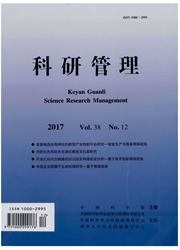

 中文摘要:
中文摘要:
基于供应链合作创新视角,知识交易双方投入要素的无法验证性所引起的双边道德风险往往会阻碍知识交易的顺利进行。针对上述问题,运用委托代理理论设计了双边道德风险下供应链企业间知识交易的正式契约及关系契约激励机制。研究表明,双边道德风险下知识交易的正式契约无法有效激励交易双方共同投入;对于任意贴现因子,实施关系契约的知识交易量与供应链创新收益产出均不小于正式契约,且随着贴现因子的增大,关系契约的激励效果越显著;当贴现因子达到一定门槛值时,关系契约能有效激励交易双方投入及供应链创新收益产出达到最优。最后,通过数值算例验证了相关结论的有效性。
 英文摘要:
英文摘要:
Based on the perspective of cooperative innovation in the supply chain, the double moral hazard in knowledge trading among members resulted by the intangibility and unveritlability of their resources input will hinder the smooth progress of knowl- edge trading. Aiming at the above - mentioned problem, formal contract and relational contract of knowledge trading are designed with principal -agent theory, and then the incentive effects of contracts are analyzed. The conclusions indicate that the formal contract cannot motivate their contribution in knowledge trading effectively; the transfer quantity of knowledge trading and innova- tion income of supply chain under the relational contract are not less than that under the formal contract for all discount rate; the incentive effectiveness of the relational contract is getting more obvious with the increase of discount rate. When the discount rate reaches a certain threshold value, the optimal resources input and innovation income can be achieved through relational contract. At last, the effectiveness of the conclusions is verified through numerical examples.
 同期刊论文项目
同期刊论文项目
 同项目期刊论文
同项目期刊论文
 期刊信息
期刊信息
